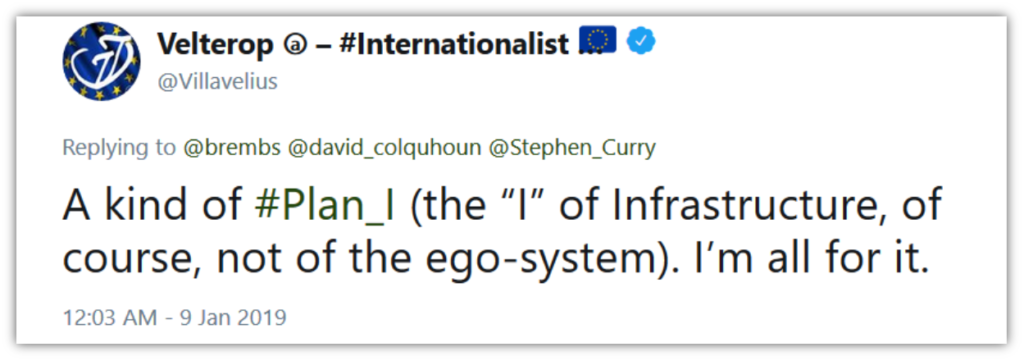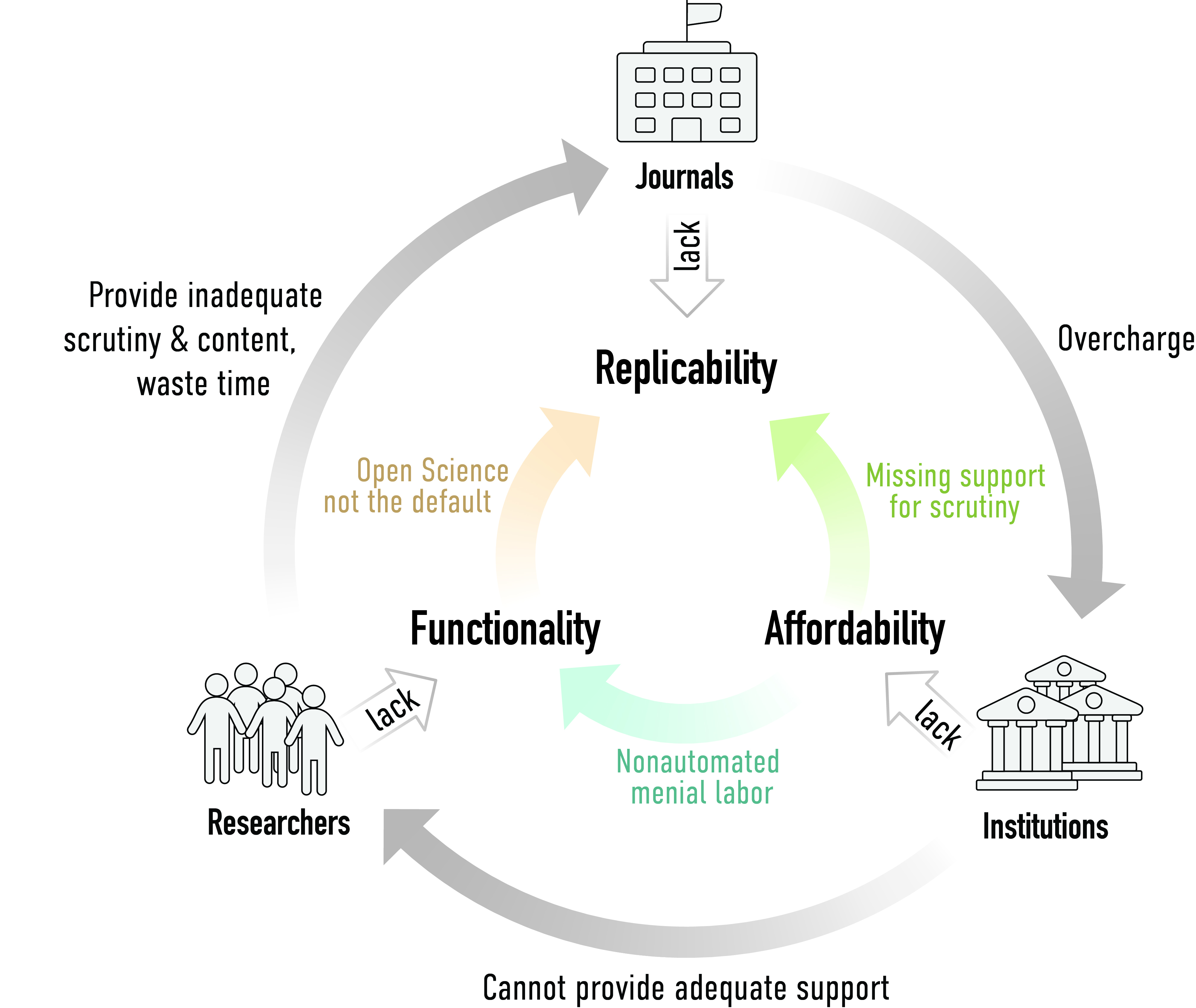Yesterday, cOAlition S published their updated principles and implementation guidelines for #PlanS, together with the rationale behind the update. This constitutes a very much welcome effort, as evidence of the increasing awareness among funders as to their potential leverage in infrastructure modernization, at a time when institutions have apparently abandoned their faculty completely.
These policies would have been a much-needed initiative about eight years ago, when there was still a problem of access to the scholarly literature, when Unpaywall didn’t exist and sci-hub had just launched. Today, we have so many ways to access our literature, that these policies seem more like beating a dead horse. From this perspective, Plan S targets the wrong actors (individuals rather than institutions) to achieve a minor goal (Open Access), when our infrastructure rewards unreliable research, costs ten times too much and lacks crucial functionalities. The three components of the scholarly infrastructure emergency (reliability, affordability and functionality; RAF) remain untouched by Plan S while a (today) minor problem receives more attention than it deserves. In a way, Plan S seems more like a band aid for a small cut on a hand while the large, malignant tumor remains untreated.
It is in the power of cOAlition S funders to set policies that would tackle the RAF tumor/emergency and help solve the minor access problem as an added benefit: require institutions to provide modern scholarly infrastructure before any research funds can flow. Given the overall aim and language of Plan S, one can remain optimistic that cOAlition S will deliver such more adequately targeted, modern and hence effective policies in the near future. Perhaps we can read about a “Plan I” (for infrastructure) in the near future?














